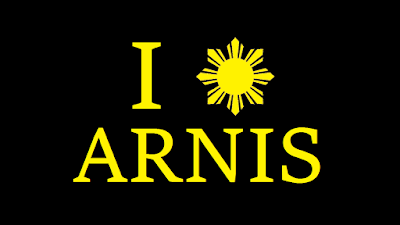Author Spotlight: Mark Romain
Author Spotlight: Mark Romain
I would like to offer a tip of the hat and a hearty thank you to the author of Escrima Self Defence: Stick, Knife, Empty Hand, Mr. Mark Romain. He took time out of his busy schedule to answer various questions and provide information and insight that made this really interesting for me and, I hope, you as well. I truly appreciate his precious time.
 |
| Author Mark Romain |
Mark Romain, from Essex in the U.K., worked in the Metropolitan Police Service beginning in the mid-eighties, with two tours of duty in homicide and retired in 2015. He began his martial arts training at the age of eight by studying Judo, Shotokan Karate and Wado Ryu Karate. Later, he was introduced to Wing Chun, and came across Escrima at the same time. He was a Senior Instructor in the British International Fighters Federation, and also developed his own organization, the British Kyushodo/Escrima Association (B.K.E.A). He and his wife Clare have two grown children and one grandchild, two English Bull Terriers and “a very bossy Dachshund called Weenie!”
I had the great opportunity to correspond with Mr. Romain and ask him some questions and gain some insight into his interest in the martial arts. He is a friendly and kind man, and I am very glad to have been able to get to know more about him. Enjoy!
LB: Where and when did you learn Escrima?
MR: When I was in my mid-teens, I was introduced to Wing Chun Kung Fu. By accident, I stumbled across Escrima at around the same time, and was immediately fascinated by the tremendous skill and speed involved, and the fact that Escrimadors practised their art with real weapons right from the get go. Escrima was completely unheard of in the U.K. at the time, and although Bruce Lee films were very popular, the only weapon that anyone was interested in was the nunchaku! There were only a couple of clubs in the country but, fortunately for me, one was right on my doorstep! I studied under a man called Jay Dobrin, who was incredibly gifted and seemed to have a natural talent. Although I haven’t had any contact with him for many, many years, I believe he is still teaching.
LB: Where did you get the idea for your book and what inspired you to write it?
MR: At the time, there was no internet, and the only way to learn about the martial arts was to read. I had a huge collection of books on both unarmed and weapons styles, but there was absolutely nothing available about Escrima, so I decided that this needed to be rectified. We contacted a publisher and asked if they would be interested in publishing an Escrima book, and they were, so we set about putting a training package together. By the time my book was published, I had been training in Escrima for about eight years, I think, and was a qualified and well established instructor. Before putting pen to paper, I read everything I could about the art, and about its history in the Philippines, ordering books from the library, or from the U.S.A. and talking to anyone with any insights that might help me understand the history of the art better.
LB: Have you ever been to the Philippines?
MR: International travel wasn’t as easy in the 1980’s as it is now (or was before Covid-19 came along) so I never got to visit or train there, even though it was an ambition of mine for many years. I was fortunate enough to meet Danny Inosanto when he visited the U.K., as he came along to the club I was training at and spent an evening with us. Putting on a demonstration for him was quite a nerve racking experience!!
LB: Did you learn more about martial arts from writing the book?
MR: I would say that the research and preparation I did before writing the book greatly increased my overall understanding of all the martial arts as I spent a lot of time looking at other weapons systems to work out in which respect they were similar and in what ways they differed.
LB: After all of these years, how important has your experience in the martial arts been to you in your life, and what has it meant to you personally?
MR: For me, the martial arts have formed a very important part of my life. They taught me discipline, respect, patience, and made me realise that anything worth having doesn’t come easily! I saw many people drop out along the way, complaining that it was too hard, or took too long, but the perseverance was worth it to me, and I think the training makes you much tougher, mentally and spiritually as well as physically.
Well, I sure hope you enjoyed this little interview, I know I did. God bless you, have a great day, and remember - whenever you train, train with all your heart!


Comments
Post a Comment